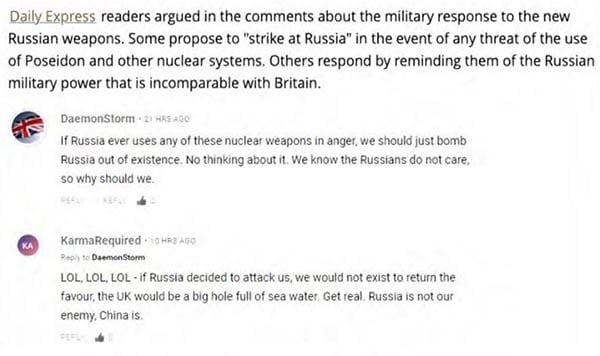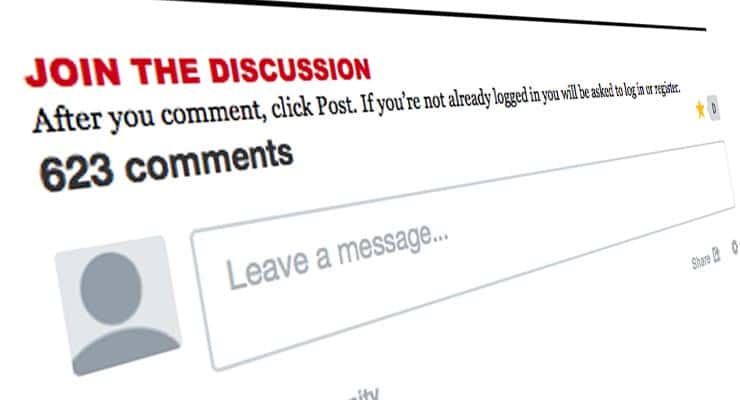Russia turns to “readers comment” in influence campaign, researchers say
Russian “Internet trolls” have turned to the reader comments of several high-profile publications in the UK and US as part of an influence campaign, researchers at Cardiff University have announced.
Analysts at the Cardiff University’s Crime and Security Research Institute found that pro-Kremlin entities are posting pro-Russian comments in relevant articles on The Daily Mail, Fox News, Washington Post, Express and Times among others. The comments appear to be designed to support Russian interests or follow a pro-Russian or anti-NATO narrative.
Russian news articles would then be authored based on those troll comments, researchers concluded.
The campaign is designed to influence public thinking in western countries and in Russia to create a more favourable image of the country, as well as to highlight Russia being a military and power stronghold.
Sponsored Content. Continued below...
Researchers used an example on the Mail Online website – a site generally favoured by the political right – where 2,500 comments had been posted on a news article about the US withdrawal from Afghanistan and the Taliban’s swift takeover of the country.
Many of those comments were part of the Russian influence campaign to try and sway public thinking. Those comments were then used as a catalyst for a subsequent Russian news article titled “The British have compared the rise of the Taliban to power with the end of Western civilisation“.
The team at Cardiff University said 18 Russian news articles about the fall of Kabul were created using these troll comments on UK and US websites.
Sponsored Content. Continued below...
An example of such an article is below, posted on the RuEconomics website in Russian (translated into English) that discusses troll comments on the Daily Express website.

The team also claimed to have thus far spotted 242 US/UK news articles with these “influence” comments posted on them.
It is not clear if the organised campaign is state-sponsored by the Kremlin, though the researchers claim that due to its organised nature, it is likely that it is.
This latest research is another chapter concerning the many accusations levelled against Russia in the context of political interference. In 2019, Russia was accused by US Intelligence services and the Mueller Report of conducting a similar influence-themed campaign to help Donald Trump win the White House.
Continued below...
Thanks for reading, we hope this article helped, but before you leave us for greener pastures, please help us out.
We're hoping to be totally ad-free by 2025 - after all, no one likes online adverts, and all they do is get in the way and slow everything down. But of course we still have fees and costs to pay, so please, please consider becoming a Facebook supporter! It costs only 0.99p (~$1.30) a month (you can stop at any time) and ensures we can still keep posting Cybersecurity themed content to help keep our communities safe and scam-free. You can subscribe here
Remember, we're active on social media - so follow us on Facebook, Bluesky, Instagram and X
